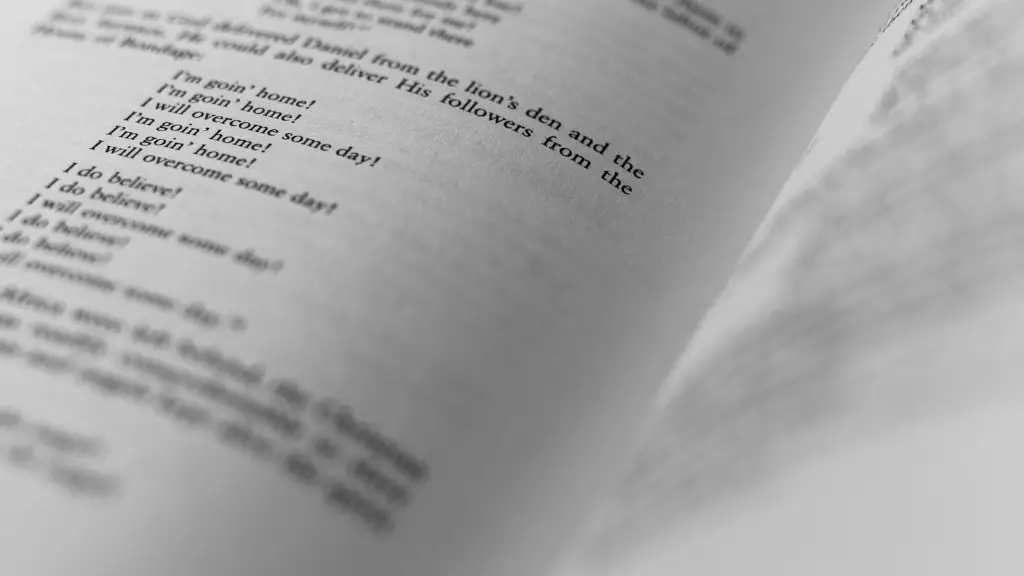Background information
Spoken word poetry is a poetic performance art that emphasizes the use of words to generate feelings, emotions and ideas. It is considered to be an oral form of literature where the poet speaks their work out loud to an audience in a way that the words create a tangible and heartfelt connection between the poet and those present. Spoken word poetry has gained much traction in recent years and is enjoyed in many live venues.
What Makes Spoken Word Poetic
The words used in spoken word poetry differ significantly from those used in traditional writing forms, as the language should be accessible and direct. The words should convey the message clearly and be meaningful to the listener. Structuring of the spoken word text is often unconventional and the poet is encouraged to play with the idea of wrapping words around each other, creating a unique sound and tone. Punctuation is used to emphasize ideas and sounds, creating a poem that is much more conversational than traditional writing forms.
The Power of Spoken Word
Spoken word poetry is a powerful form of art that has the power to reach a much larger audience than any written form of poetry. It has the unique ability to directly communicate a poet’s emotion and thought process without the need for a common understanding between the presenter and audience. It also allows the poet to emphasize certain words and phrases in order to drive the desired message directly and powerfully to the audience.
In addition, spoken word poetry often allows the poet to directly interact with the audience in a way that is not possible when writing poetry. This allows the audience to better understand and appreciate the theme or point of the poem, as well as provide feedback to the poet that can help refine and perfect the poem over time.
Influence of Spoken Word
Spoken word poetry has been influenced by many different sources. Early spoken word poets often drew inspiration from rap and hip-hop. Over the years, more and more poets have added their own personal stylistic flair to their work, creating a truly unique form of art. Traditional forms of oral literature, such as storytelling and singing, have also influenced the development of spoken word poetry.
Throughout the course of history, spoken word has been used to spread important messages and social commentary. It has been used by poets to challenge widely-held beliefs and provoke conversations about sensitive topics.
Exposure of Spoken Word
Over the past few years, spoken word poetry has gained significant traction in popular culture. Social media outlets have allowed for poets to share their work with larger audiences, whilst live venues have made it possible for poets to have a physical audience to perform their work to.
Additionally, many online platforms promote and showcase different poets’ work. This has elevated many poets to become household names and provided a platform for them to continue their craft and reach a larger audience.
Participating in Spoken Word
Participating and performing in spoken word is an incredibly rewarding experience. Those who are interested in participating are encouraged to attend open-mics and slams, as these are wonderful opportunities to not only gain feedback, but to also be embraced and appreciated by the spoken word community.
Although it may seem intimidating to perform in front of a live audience, spoken word performances often lead to growth and development as a poet. It is likely that a few nerves will be experienced, however, the more frequently one performs, the easier it will become.
Writing Spoken Word
Before performing a spoken word poem, the poet must first write the initial text. It is important to note that the written form of spoken word is often much different from the traditional writing, as certain words must be emphasized or altered in order to bring out the emotion and power of the words.
It is recommended to begin by writing about a subject in which one is passionate about and to also focus on a specific message. It is important to aim for clarity and simplicity in the text, as the audience must understand the point of the poem.
Conduct Before a Performance
It is important for the poet to warm-up their voice before a performance, as it is essential for speech to be as clear and effective as possible. This can be done by taking a few deep breaths, as well as running through a few vocal exercises to loosen up the vocal cords and ready the throat.
In addition, the poet should be aware of their audience and keep an eye on the allotted time. This will ensure that the performance is concise and to the point, as this will create a stronger overall impact on the audience.
Collaborating with Other Performers
Collaborating with another performer can be an incredibly rewarding experience and often leads to great results. It allows performers to gain insight on each other’s thoughts and ideas, as well as provide constructive feedback about one’s own work.
Although collaboration may initially seem intimidating, it can often bring out great creativity in performers and ultimately lead to a much more special performance.
Style and Technique
Style and technique are essential elements of spoken word poetry. Performers are encouraged to focus their craft on a particular style and to develop a unique technique to bring out their words. This will ensure that their work stands out from the crowd and is enjoyable to the audience.
Additionally, poets should pay close attention and utilize the elements of rhythm, timing and flow in their work. This will help to create a poem that is layered, clever and captivating.
Exploring Topics and Ideas
When writing spoken word poetry, poets should focus on topics and ideas that are meaningful and relatable to their audience. This can be anything from current events to personal stories. It is also important to explore topics that are contentious or resonate with the current social and political climate.
Poets should also consider exploring the feelings and emotions of their audience and how it relates to their work. Exploring these complex human emotions will ensure a poem is powerful and can capture the hearts of both the speaker and the listeners.


